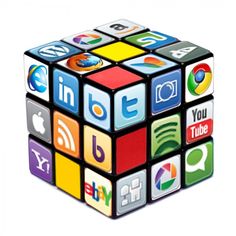What, exactly, constitutes something as new media? Although the exact definition of what constitutes “new media” is debatable, there’s one thing it definitely isn’t. New media is not static–it’s constantly changing, always evolving. And now, as the world enters a globally-networked digital age, the next generation of new media is emerging, and it is governed by two main principles–a focus improving accessibility to information, and a focus on personalization.
In their book Macrowikinomics, Don Tapscott and Anthony D. Williams note that now is a time of participation in the economy and society, driven by necessity and enabled by the possibilities provided by the Web.
We can rethink and rebuild many industries and sectors of society on a profoundly new, open, networked model… And for the first time in history, ordinary people everywhere can participate fully in achieving this new future.
The new media of today is focused on the democratization of information–providing a platform to help us access the rest of the world, and other media. As humans, we have an inherent thirst for knowledge. Our culture values a type of knowledge that is more about finding than knowing. It is now easier to find information, knowledge, or opinions. This is evident in the success of search giants like Google that give anyone with an Internet connection the ability to instantly find information on any subject, and in companies that develop mobile applications, giving users quick access to the information, products, and/or services they provide. However, it has also become much easier for an individual to share their information, knowledge, and opinions with others through social networks like Facebook and Twitter.
The second main principle that defines the “new media” of today is an increased focus on personalization–it is no longer about a centralized, one-way, one-size-fits-all mass production model, controlled by the powerful owners. The Internet is the only platform for media that is not completely governed by large corporations–this makes it one platform of media that can be truly democratic.
Social networking is the new mode of social production… the Web has produced a new engine of innovation, wealth creation, and a powerful new force that radically drops collaboration.
Originally posted on marikhacabel.com



























